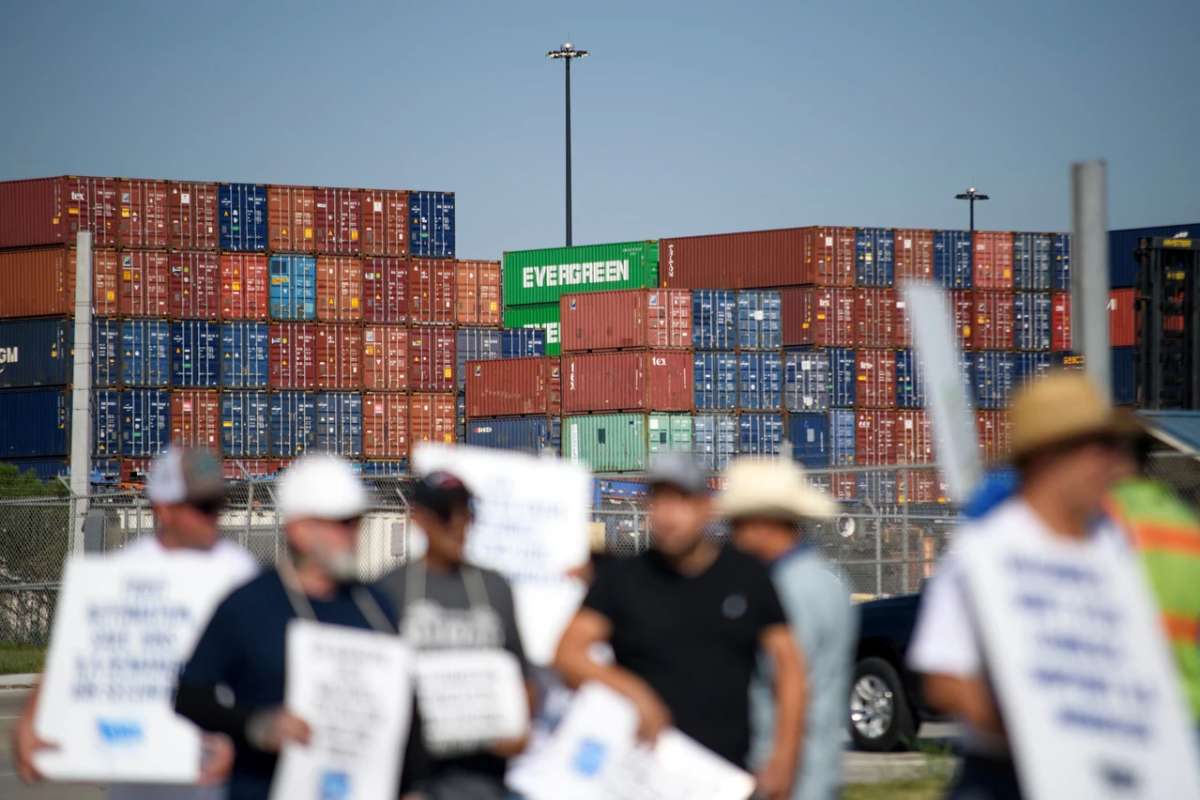Source – turkiyetoday.com
Strike Raises Concerns Over U.S. Supply Chain and Economy
This week, U.S. ports from Maine to Texas ground to a halt as dockworkers went on strike for the first time in nearly five decades, sparking concerns over possible shortages and higher retail prices. The strike, organized by the International Longshoremen’s Association (ILA), involved around 45,000 workers who began picketing early Tuesday at ports along the East and Gulf coasts. With the holiday shopping season and a presidential election approaching, a prolonged strike could have severely impacted supply chains, leading to price hikes across various sectors.
However, the International Longshoremen’s Association and the United States Maritime Alliance reached a temporary agreement on Thursday, suspending the strike until January 15. This provides a window for both parties to negotiate a new contract, with workers returning to their positions in the meantime. The primary issues that led to the strike include demands for higher wages and a ban on automation technologies at U.S. ports. If negotiations fail to reach a resolution by January, the potential for another strike remains, which could still threaten the U.S. economy.
Core Issues and Affected Ports
At the heart of the dockworkers’ demands is a significant wage increase and resistance to automation. The union is pushing for a 77% pay raise over the next six years, citing inflation and years of minimal wage growth. While the base salary for International Longshoremen’s Association members stands at around $81,000 annually, some earn over $200,000 due to overtime. The United States Maritime Alliance had offered a 50% wage increase and maintained limits on automation, a crucial point of contention. Additionally, the alliance proposed improvements to health care benefits and retirement plans, but the union insists that automation would eliminate jobs and undermine workers’ long-term security.
The ports impacted by the strike include several critical hubs such as Baltimore, Brunswick, and New Orleans, which specialize in handling automotive goods, agricultural produce, and raw materials. Other major ports affected were Boston, New York/New Jersey, Savannah, and Houston, where a prolonged shutdown could have severely disrupted industries ranging from auto manufacturing to food distribution.
Economic Implications and Industry Responses
Although the strike was suspended before causing significant disruptions, businesses had already started preparing for the worst. Major retailers and industries had taken steps to safeguard their supply chains, with some shifting operations to West Coast ports and smaller shipping routes. A Minnesota-based retailer, Rick Haase highlighted how early ordering and securing warehouse space helped his business navigate potential delays. However, storing goods for extended periods can lead to inflationary pressures as businesses try to recoup additional storage costs.
Had the strike persisted for over a month, consumers might have faced shortages or price hikes, particularly on fresh produce and other perishable goods. Jay Foreman, CEO of toy company Basic Fun, mentioned that rerouting shipments from East Coast to West Coast ports added 10-20% extra costs, which may lead to higher retail prices. In contrast, some businesses, like Dynamic Auto Movers, expanded their partnerships with smaller ports to minimize reliance on the busiest locations.
As negotiations resume in the coming months, the suspension offers temporary relief, but the threat of economic disruption remains if no resolution is reached by January 2024.
Also Read: Understanding Multi-Chip Module: A Comprehensive Guide












